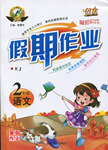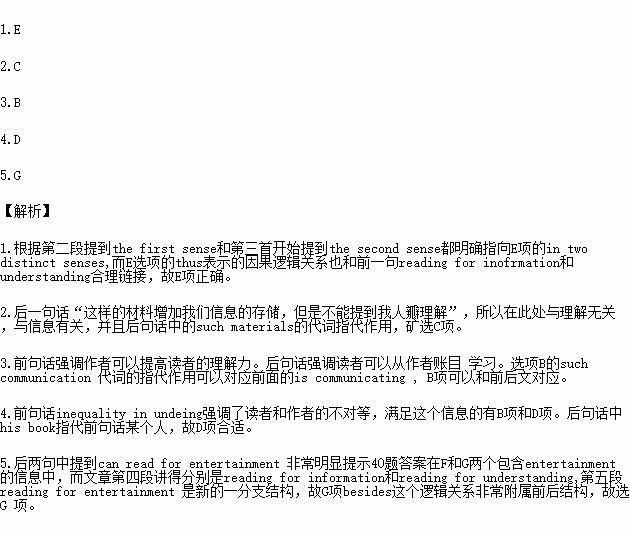题目内容
根据短文内容,从短文后的七个选项中选出能填入空白处的最佳选项。选项中有两项为多余选项。
There is distinction between reading for information and reading for understanding. 1.The first sense is the one in which we read newspapers, magazines, or anything else. 2.Such materials may increase our store of information, but they cannot improve our understanding. And clearly we don’t have any difficulty in gaining the new information, for our understanding was equal to them before we started. Otherwise, we would have felt the shock of puzzlement.
The second sense is the one in which we read something that at first we do not completely understand. Here the thing to be read is at the first sight better or higher than the reader. The writer is communicating something that can increase the reader’s understanding.3. Otherwise one person could never learn from another. Here “learning” means understanding more, not remembering more information.
What are the conditions in this kind of reading? First, there is inequality in understanding. 4. Besides, his book must convey something he possesses and his potential readers lack. Second, the reader must be able to overcome this inequality in some degree. And he should always try to reach the same level of understanding with the writer. If the equality is approached, success of communication is achieved.
5. It is the least demanding and requires the least amount of effort. Everyone who knows how to read can read for entertainment if he wants to. In fact, any book that can be read for understanding or information can probably be read for entertainment as well.
A. The writer should have a better communicating skill.
B. Such communication between unequals must be possible.
C. We can get access to the content of those materials easily.
D. The writer must be “superior” to the reader in understanding.
E. Thus, we can employ the word “reading” in two distinct senses.
F. Reading for entertainment is capable of increasing our understanding for information.
G. Besides gaining information and understanding, there’s another goal of reading—entertainment.
 鸿图图书寒假作业假期作业吉林大学出版社系列答案
鸿图图书寒假作业假期作业吉林大学出版社系列答案

 ),并在其下面写出该加的词。
),并在其下面写出该加的词。